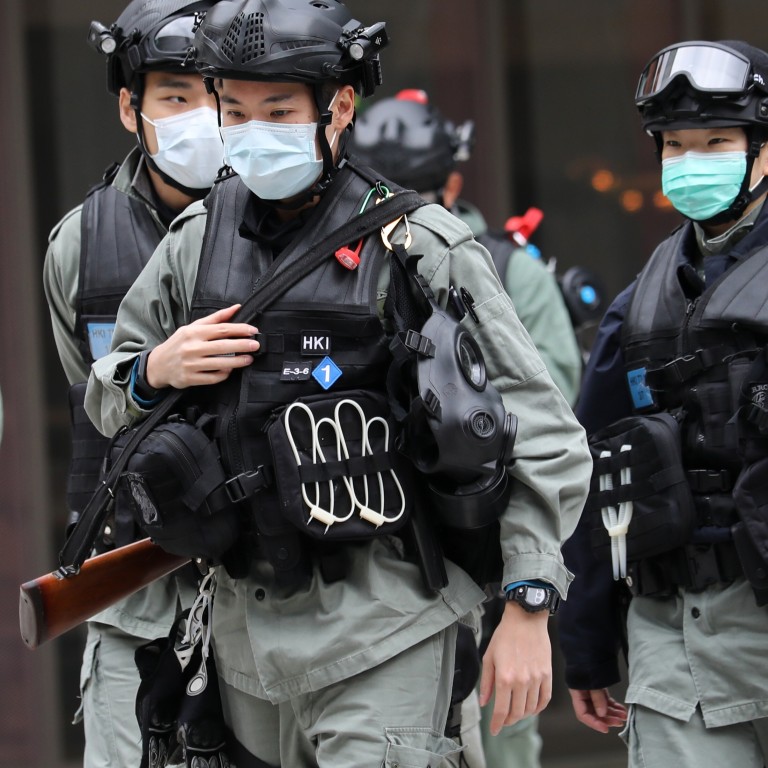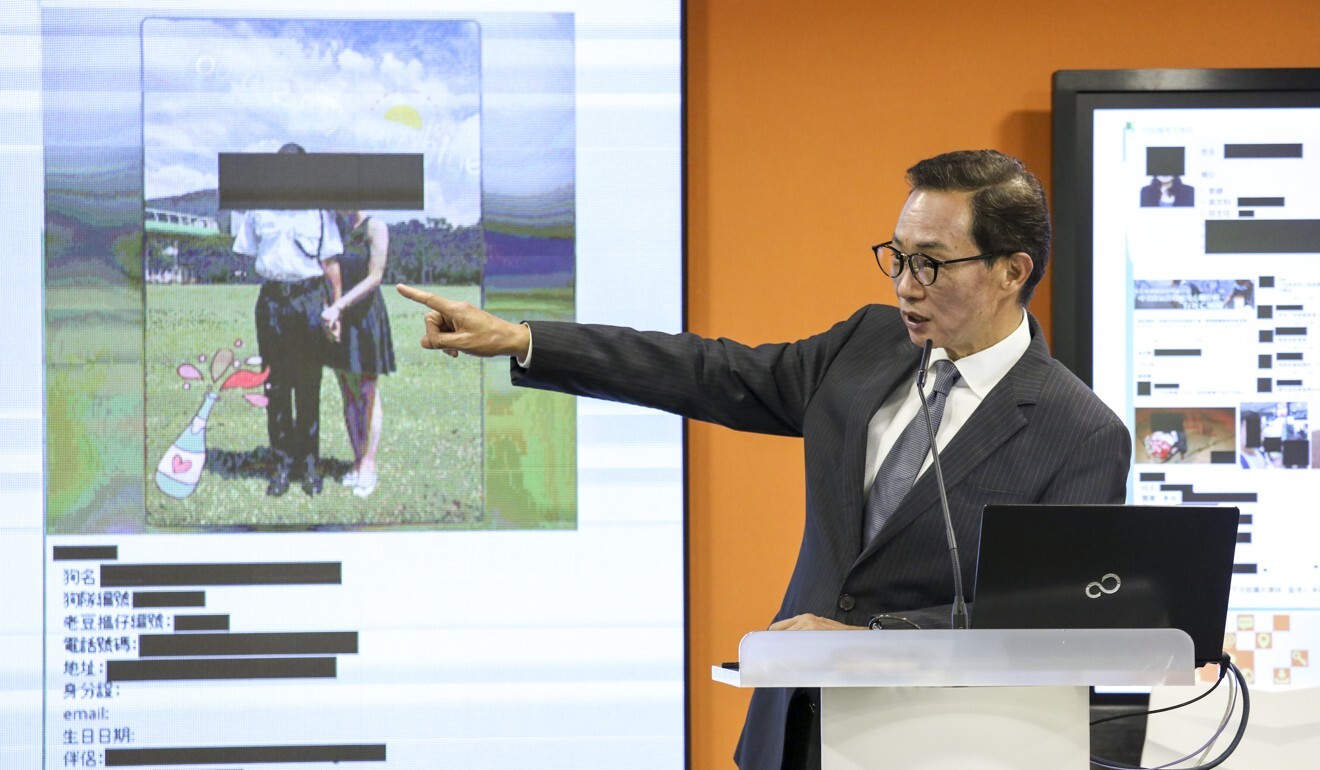
Hong Kong court rejects police group’s application to keep voter details under wraps over doxxing concerns
- The Junior Police Officers’ Association said voter registry information such as home addresses could be used to aid doxxing attacks against members of the force, which had become a lightning rod for public discontent
A Hong Kong court on Wednesday dismissed an application by the city’s largest police group to ban election authorities from publicly disclosing voters’ details.
The ruling by the Court of First Instance also ended a temporary ban on publishing and viewing voter registries.
Mr Justice Anderson Chow Ka-ming ruled that the publication of the registries, which make the names and residential addresses of voters available for public inspection, were both lawful and constitutionally compliant.
He said the registries were rationally connected with the aims of preserving the integrity of the electoral system and easing canvassing activities by candidates.
The judge also found no evidence that information made available through the registries had been used for doxxing, adding that police officers should expect no greater degree of privacy than other voters.

A government spokesman said it welcomed the court’s judgment: “The government will resume the previous arrangements to allow members of the public to view the voter registry, in order to ensure credibility of our electoral registration system.”
Special arrangements will be made for public inspection of the registry as government offices remain closed amid the coronavirus pandemic. The Registration and Electoral Office will announce the details at a later date.
The ruling followed a legal challenge by the Junior Police Officers’ Association (JPOA), which successfully applied for a temporary ban last October on the publication of voters’ personal details. It said the move was to counter doxxing attacks amid the anti-government protests, during which the force had become a lightning rod for public discontent.
The JPOA said the registers, which list the names and addresses of voters, could assist doxxers in the malicious publication of personal particulars of its 25,000 members on the internet and across social media platforms. It said the doxxing attacks had affected officers’ work and caused psychological stress to their families.
Although an individual’s residential address is an aspect of his private and family life, the level of privacy that may be attached to the address is not high
But Chow found no proof for the assertion that some officers had indeed suffered because their names and home addresses had been made public in the registries, or that they had been deterred from registering as a voter for fear of doxxing.
“Although an individual’s residential address is an aspect of his private and family life, the level of privacy that may be attached to the address is not high,” Chow said in his 65-page judgment.
He noted that most of the personal details leaked online, such as contact numbers and social media accounts, could not have originated from the registries which only provide minimal information.
“While I can readily see that doxxing, whether against police officers and their family members or other persons, is a serious problem in society, I do not consider that the answer to this problem lies in abolishing or restricting public access to electoral registers, or indeed other public registers.”
Chow accepted arguments raised by election authorities and the Hong Kong Journalists Association (HKJA) – which joined the legal battle as a third party – that the integrity of the electoral system would be maintained by allowing the press and members of the public to inspect voters’ registries and detect illegal electoral conduct.
Those running for elections, he said, would also need to know the names and addresses of voters to facilitate their campaigns and canvass support.
Chow added that there were already statutory and administrative safeguards against doxxing in existing electoral laws, which prohibited any unauthorised use or disclosure of information obtained from a register.
We are happy that the court has upheld the importance of media scrutiny and open information
Wednesday’s ruling was welcomed by both journalists and lawmakers.
HKJA chairman Chris Yeung Kin-hing said it would allow the media to continue uncovering corrupt election practices. “We are happy that the court has upheld the importance of media scrutiny and open information.”
Democratic Party leader Wu Chi-wai said: “We, as political parties, have relied on checking the registries to uncover irregularities among voters ... There were cases where vote-rigging was found through such inspections.”
Lawmaker Charles Mok, of the IT sector, said: “The registries do serve a public function. It would be disproportionate to scrap their publication, given that viewers are already under certain restrictions.
Under the growing threats of being doxxed, the government has responsibility to safeguard police officers and their families
But pro-establishment lawmaker Elizabeth Quat expressed disappointment over the judgement.
“Under the growing threats of being doxxed, the government has responsibility to safeguard police officers and their families,” she said, urging authorities to consider increasing penalties for those who violated the usage of voter registries.
The JPOA did not comment on the ruling.
The law generally requires election authorities to make available a finalised version of the voters’ registry for public inspection, and update it annually. The Electoral Affairs Commission (Registration of Electors) Regulation prohibits the usage of information obtained from a registry for non-electoral purposes. Offenders may face six months in prison and a fine.
The JPOA filed the application for judicial review to the High Court on October 15, in the hope of barring public inspection of all voting registers ahead of the district council polls on November 24.
It also asked the court to make such a ban temporarily effective until the end of the legal proceedings.
The Court of Appeal granted a short-term injunction on October 22, after the lower court turned down the JPOA’s request.
The appeal court, however, allowed authorities to supply an extract of the finalised register to candidates in the municipal polls last year.


